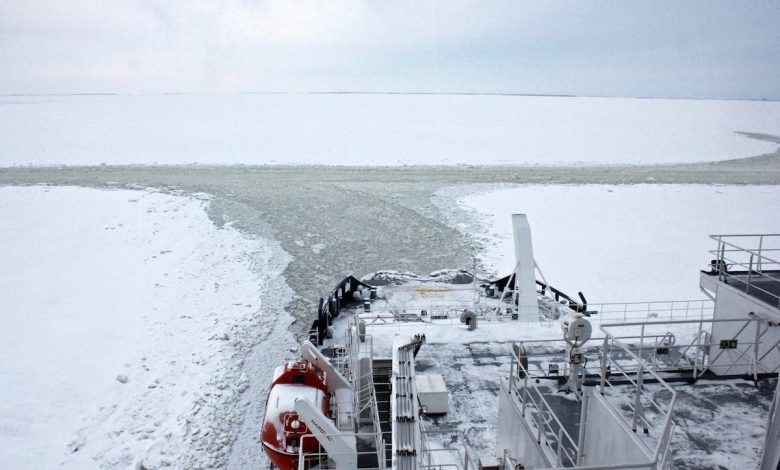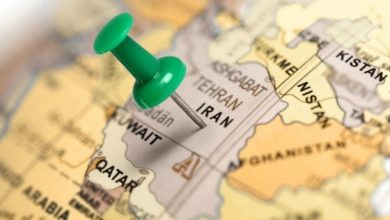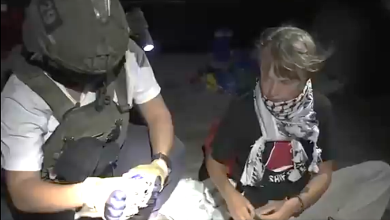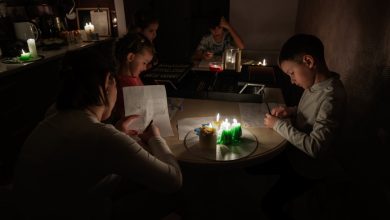Canada, Finland tout different paths of ‘icebreaker diplomacy’ with US

MILAN — Canadian and Finnish shipbuilders have made different offers to the United States for the production of icebreakers, which must weigh what it values more: speed or its sovereign shipyard industry.
Following President Donald Trump’s expressed interest in January of acquiring 40 new icebreakers for the U.S. Coast Guard, Helsinki has set its sights on scoring what could be a major deal with Washington.
Before his visit to meet with the American leader in Florida last month, Finnish President Alexander Stubb said that he hoped “icebreaker diplomacy would help Finland maintain good relations with the U.S. and Trump.”
However, the country is not the only one in line, as a major Canadian shipbuilder specialized in the construction of such vessels wants a piece of the business.
“Finland is most definitely trying to build the U.S. icebreakers in Finland. … The discussions we’ve been having with the U.S. is around whether they could take our design and use it to build their icebreakers domestically in their own shipyards,” David Hargreaves, senior vice president of business development at Seaspan, told Defense News.
“That concept seems to be getting a fair level of traction both in Washington at a political level,” he added. “We had last week a visit of a U.S. congressman, and we’ve been having various conversations with U.S. yards who are in a position to build these types of vessels,” he added.
Under U.S. law most Coast Guard vessels and their major components must be constructed in American shipyards to support national industries and enhance national security. However, exceptions may be authorized by the president.
Trump has been adamant that he wants the vessels to be delivered quickly, as the ones operated by the country’s Coast Guard are approaching retirement age, but he also wants to rejuvenate national shipbuilding capabilities.
“It really depends where America puts its priority – if it’s on schedule, then Finland is probably the right answer. If they continue to put priority, which they have, on having their own sovereign shipbuilding capability, then Finland is not the right answer,” Hargreaves said.
Another possibility, he noted, may be that Washington opts for a hybrid strategy, where they could buy one or several icebreakers from Finland to get those faster while simultaneously having a program to build the rest in the United States.
While Trump’s has been talking about 40 new vessels, a 2023 Coast Guard fleet mix analysis concluded that the service would need between 8 to 9 polar icebreakers, including four to five heavy ones as well as medium ones, to conduct its Arctic missions effectively in the future.
Trade relations between Canada and the U.S. have been significantly strained over the last few months due to a series of tariffs and retaliatory actions. On April 9, Ottawa extended the rates placed on U.S. automobiles and parts, as Washington announced a 90-day pause on certain tariffs, but the 10% standard on most Canadian imports remained.
The shipbuilding industry has somehow largely been spared from such economic strains, with joint work between the two neighbors persisting, said Hargreaves.
“We are a business, we are looking at opportunities. Selling our design to them or our services around helping them to build icebreakers is a business opportunity – we are not going to get caught up in some of the current fuss and have a longer outlook,” he said, referring to Trump government.
Meanwhile, all three countries are still respectively trying to figure out how to implement the trilateral Icebreaker Collaboration Effort, or ICE Pact, aimed at combining Finnish, Canadian. and American expertise on the Arctic.
Country representatives are set to meet again in May to discuss more concrete steps on icebreaker design and production, shipyard workforce development and research related to polar regions.
Elisabeth Gosselin-Malo is a Europe correspondent for Defense News. She covers a wide range of topics related to military procurement and international security, and specializes in reporting on the aviation sector. She is based in Milan, Italy.







